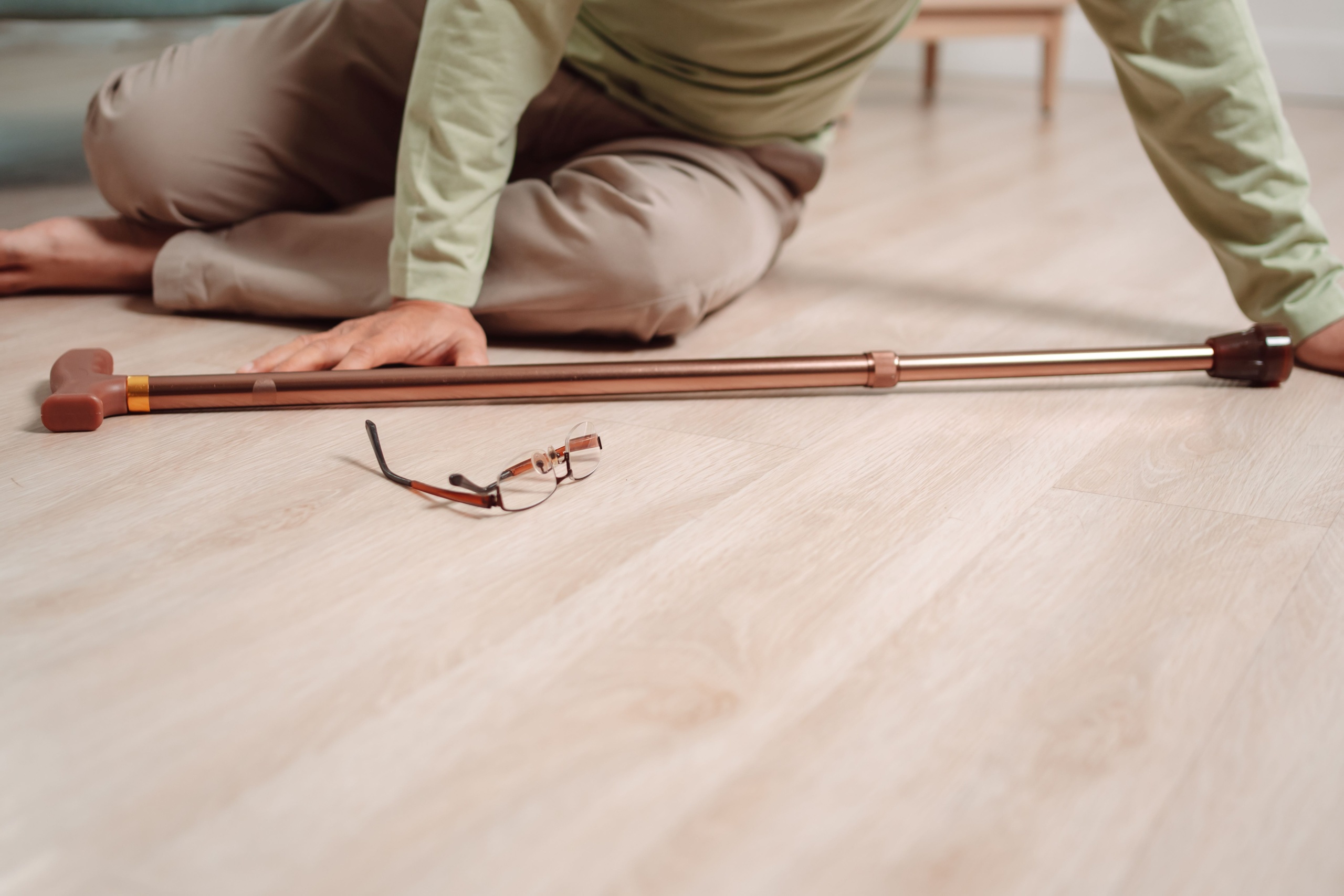In 2025, nearly 42% of New Jersey seniors live alone, a statistic that is reshaping how families, caregivers, and attorneys approach aging, home safety, and accident recovery. For the growing group of solo agers, or older adults who live without close family or partners, the question is not just how to stay independent. It is how to stay protected.
In communities like Princeton, Morristown, and Paramus, many seniors choose to age in place. The state’s strong network of home care agencies in New Jersey supports that goal, with home care in Morristown, NJ, and home care in Princeton, NJ, services offering everything from daily assistance to 24-hour care. Yet as more older adults live independently, the risk of home-based accidents, especially falls, continues to rise.
This article explores how legal planning tools such as advance directives and powers of attorney (POA) can act as “legal shields” for solo seniors. It is not only about prevention, but also about empowering individuals to maintain control, ensure quick response, and protect their rights after an accident.
The Solo Aging Surge in New Jersey
Across the country, about 4.2 million Americans will turn 65 in 2025, which is the largest single-year increase in U.S. history. In New Jersey, the numbers tell a deeper story:
- 41.8% of seniors aged 65 and older live alone, ranking the state 17th nationally.
- By 2050, about 25% of New Jersey residents will be seniors, many without close family nearby.
- 44% report loneliness, according to the New Jersey Department of Human Services.
Communities like Hamilton, Monmouth, and Morris County reflect this pattern. Many seniors want to remain at home, supported by home care in Hamilton, NJ, or home care in Monmouth, NJ, services, rather than move to long-term care facilities.
But aging solo has hidden risks. Living alone often leads to delayed emergency response, fewer witnesses after a fall, and limited ability to act legally after an injury.
Home Accidents: The Hidden Crisis for Solo Seniors
Falls remain the number one cause of injury deaths among New Jersey residents aged 60 and older. One in four seniors experiences at least one fall every year, and this number is rising as more seniors choose to live independently.
The Reality Behind the Numbers
- In New Jersey, falls caused over 1,400 to 1,600 deaths per year among adults aged 65 to 74 in recent years.
- Home environments, particularly unmodified houses or apartments, account for one-third of all senior accidents.
- Nationally, 79% of fall-related deaths occur among seniors.
While these statistics are concerning, they show why proactive legal and care planning is essential. Without close family nearby, solo agers rely heavily on home care providers, advocates, and legal representatives to respond when accidents happen.
This is where in-home care and personal injury law intersect.
When Independence Meets Risk: Why Legal Planning Matters
Imagine a Princeton senior who lives alone, trips on a loose stair, and suffers a hip fracture. Without a power of attorney or advance directive, no one has the legal authority to make decisions about care or to file a claim against a negligent landlord.
Guardianship proceedings may follow, delaying access to funds for rehabilitation and medical treatment. These delays can lead to a 20 to 30 percent reduction in potential settlement value because insurers often use the lack of documentation as leverage.
With proper legal planning, through advance directives, POAs, and estate documents, the same senior could have an appointed advocate who is empowered to:
- Approve treatment and rehabilitation plans immediately
- Access medical records to build a personal injury case
- Authorize a personal injury lawyer in New Jersey to pursue damages
- Manage finances to cover home modifications and in-home care
Legal Shields 101: Advance Directives and Powers of Attorney
1. Advance Directives: Medical Protection for Solo Agers
An advance directive lets you specify your wishes if you become incapacitated because of an accident, illness, or fall. In New Jersey, there are two main types:
- Instruction Directive (Living Will): States which treatments you do or do not want in case of severe injury, such as ventilators or feeding tubes.
- Proxy Directive: Names a trusted person, not your doctor, to make medical decisions for you.
Why it matters: After a home accident, this document ensures that your chosen advocate, not the court, makes decisions about surgery, rehabilitation, or ongoing care.
Ease of creation: In New Jersey, these forms require only two witnesses or a notary, and no attorney is necessary. Copies should be shared with doctors, caregivers, and trusted friends.
For someone using home care near me searches to find daily help, an advance directive adds a vital layer of protection. It allows caregivers to coordinate with your designated decision-maker immediately after an emergency.
2. Durable Power of Attorney (POA): Financial and Legal Protection
The POA gives a trusted agent the authority to handle your legal and financial matters if you become incapacitated. This can include:
- Filing personal injury or premises liability claims
- Managing bank accounts and paying medical bills
- Protecting assets through trusts or insurance settlements
In cases of falls or accidents, a POA allows your representative to act quickly with a personal injury attorney in New Jersey or an accident attorney in NJ to secure compensation for hospital bills, therapy, or long-term care.
Without one, family or friends may need to petition the court for guardianship, which can take months.
Legal Preparedness Strengthens Personal Injury Claims
In personal injury cases, documentation equals power. Judges and insurance companies recognize that seniors who proactively create legal directives are taking steps to mitigate potential damages. This foresight often results in higher settlement values.
For example, in one 2024 New Jersey case, a solo senior who had both a POA and a healthcare proxy in place slipped on an icy walkway. Her advocate quickly worked with a Burlington personal injury attorney to gather evidence, file a claim, and secure a $120,000 settlement within months.
A similar case without legal planning dragged on for 18 months, delaying recovery and reducing compensation.
The Role of Home Care and Local Support
Home care professionals are often the first line of defense for solo agers. Agencies offering home care in Paramus, NJ, or home care in Bergenfield, NJ, frequently notice hazards such as loose rugs, dim lighting, or unsafe bathrooms that can lead to falls.
Many agencies now collaborate with personal injury lawyers in New Jersey to help seniors document accidents properly. The partnership ensures that important evidence, including photos, notes, and witness statements, is collected early. This documentation is critical to building strong personal injury claims.
New Jersey’s aging-in-place infrastructure also supports solo seniors through:
- 24-hour care in Princeton, NJ, options for those with chronic conditions
- Home care in Morris Plains, NJ, services offering fall prevention programs
- Local NJ home care networks connecting seniors with advocates and social workers
If you or someone you love is aging solo, pairing home care services with legal planning provides comprehensive protection, both physically and financially.
Action Steps for Solo Agers in New Jersey
- Create an Advance Directive:
Download the official form from the New Jersey Department of Health website. Sign with two witnesses or a notary. - Establish a Durable Power of Attorney:
Appoint a trusted friend, advisor, or professional fiduciary, and make sure your attorney or financial planner has a copy. - Document Home Safety Risks:
Ask your home care provider to perform a fall-prevention inspection. - Consult a Personal Injury Attorney:
Before an accident happens, connect with a personal injury attorney in New Jersey or accident attorney in NJ who understands senior law. - Stay Connected:
Register with local senior programs or New Jersey’s Area Agencies on Aging to reduce isolation and access free legal aid.
Resources:
- Risk of Social Isolation – Age 65+ in New Jersey – America’s Health Rankings
- State Strategic Plan On Aging – NJ Department of Human Services
- Deaths due to Falls by Year, New Jersey and the United States, 2020 to 2023 – New Jersey State Health Assessment Data




